Charley Pride From the Helena Smelter to Country-Western Superstar
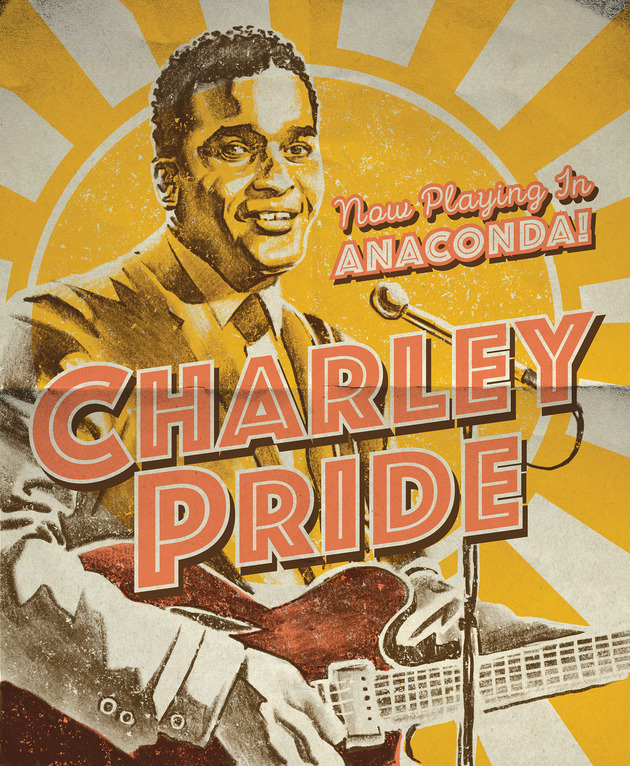
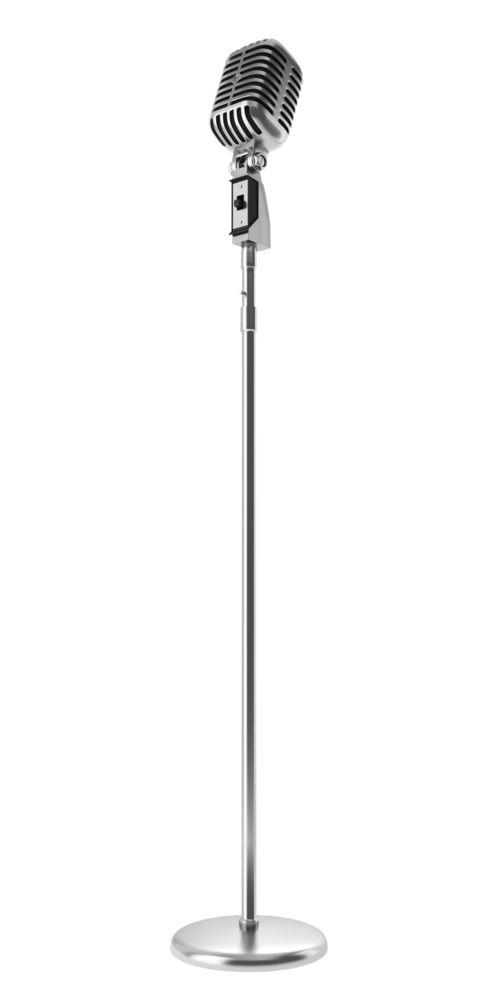 In the early 1960s, Charley Pride worked in the red-hot glow of the East Helena smelter, where slag was melted and refined into lead, among hellish edifices that burned at 2,400 degrees, hotter than the temperature of volcanic lava. Furious eddies and swirls of molten metal spun in the oven, but sometimes there was a snag and someone would have to grab a steel bar and dislodge a stubborn piece of coal.
In the early 1960s, Charley Pride worked in the red-hot glow of the East Helena smelter, where slag was melted and refined into lead, among hellish edifices that burned at 2,400 degrees, hotter than the temperature of volcanic lava. Furious eddies and swirls of molten metal spun in the oven, but sometimes there was a snag and someone would have to grab a steel bar and dislodge a stubborn piece of coal.
While Charley was working there, he reported, a man named Oscar Jones had been “jabbing and poking around the mouth of the furnace” when the flow caught his steel bar. Not fast enough to resist, Jones followed it into the fire. Charley didn’t see the man’s death, but heard about it from other smelter workers. Told and retold, the man’s gruesome demise became a cautionary tale for the other workers, a bedtime fable for the unwary.
Charley must have thought he’d traded one heat for another. When he moved to Montana from the sweltering summer heat of the deep South, he’d discovered that little Montana towns could be brutally cold in winter. One day, he reported in his autobiography, there was a wind chill of 74 below. Perhaps emboldened by the bitterly frigid temperature, someone made a miscalculation, sending a 12- to 15-foot pot of molten slag off the rail. Charley and his crew were sent to get it back on track. While working, he was warmed by the conflagration in the pot, but he remembered that the 70-meter trudge through snow and wind back to the plant was “brutal. The wind blew directly into our faces, and when we reached the shed, I touched my nose and thought it was going to break off my face... Respect for nature is one of the first things I learned in Montana.”
Why did this young Southern man weather such nightmarish conditions? Well, he wanted to be—was destined to be—a superstar. He came to the Treasure State to stake his claim in his chosen path, but he found his true calling. Or it found him. Either way, his time in Helena would solidify his future as surely as molten metal cools in a mold.
Or, in other words, he arrived a wannabe ball player and left a country-western icon in the making.
 To begin with, Charley wanted to play baseball, not sing. And in fact, an African-American man stood a much better chance securing a career in the big leagues than singing country-western music. Prior to Pride, there had only been a handful of black country singers, and like Deford Bailey, who played spoons and harmonica at the Grand Ole Opry in the 1930s, they were often viewed as novelty acts, unable to break through into the mainstream. Jackie Robinson, by contrast, had already broken through the “color line” of professional sports in 1947, though progress had been slow and intermittent. In 1960, the year Pride arrived in Montana, African-American players comprised only 8.9% of the MLB.
To begin with, Charley wanted to play baseball, not sing. And in fact, an African-American man stood a much better chance securing a career in the big leagues than singing country-western music. Prior to Pride, there had only been a handful of black country singers, and like Deford Bailey, who played spoons and harmonica at the Grand Ole Opry in the 1930s, they were often viewed as novelty acts, unable to break through into the mainstream. Jackie Robinson, by contrast, had already broken through the “color line” of professional sports in 1947, though progress had been slow and intermittent. In 1960, the year Pride arrived in Montana, African-American players comprised only 8.9% of the MLB.
By that time, he had several promising but unsuccessful attempts at playing baseball, including stints in the Memphis Red Sox and the Birmingham Black Barons, and in the All Army champion team during his service. The so-called Negro Leagues were in decline as the best players were drafted into the major leagues. Pride, reading a press release written by Montana’s Nick Marianas, himself a legendary figure in Montana history, decided to try playing with the Missoula Lumberjacks in the Pioneer League. After he was let go from that team, he heard from Marianas about the Montana State League, which Pride records “was made up of amateur teams sponsored by various smelting companies in places like Helena, Anaconda, Butte, and Billings.”
After all, baseball was still the once and future “national pastime” in the 1930s. The Helena branch of the American Smelter & Refining Company considered their team a point of pride and held 18 plant jobs open for ball players. Pride settled in well on the team, batting .444 in his first season. “Maybe if I had bombed in that league,” he wrote later, “I would have put aside my baseball fantasies then and there.”
Sometimes before a game, Charley would get on the PA system and sing the national anthem. Sometimes, he remembered, “if time permitted,” he “tacked on a country tune or two.” Often, after games, the victorious (or, occasionally, defeated) team would go out to a bar. Sometimes, “if there were an idle guitar around,” he would start strumming a little tune, and if the reaction to that were favorable, he might sing a song. He might just make a few bucks in tips, too. But gradually, he began to forge a reputation for himself; though frequently mentioned in local sports writing, he was quick becoming a musical fixture of East Helena.
It was destiny calling when the owner of the now-defunct White Mill Bar offered Pride the chance to play in his bar once or twice a week. Pride describes the bar as “noisy, boisterous, blue collar, all white, and country to the core.” Nervous, Pride auditioned with Hank Williams songs, an uncontroversial choice perhaps designed to win over a skeptical audience.
Pride notes the complicated tone of that first performance:
“I could feel the stares and hear the noise level shift when I walked across the room, set up my equipment in a corner, and began tuning the guitar. But I felt then, and still do, that the undertone of curiosity about how or what I might sing rather than about my color. It was unlikely that anyone there had ever heard a black person sing country music and they probably figured they were in for a night of rhythm and blues.”
The audience could not have been unmoved by Pride's famous, soulful voice. As he played on, he wrote, “people turned their chairs toward my corner. Several came over with requests, and when I sang them, they actually paid attention.” The audition, in fact, “turned out to be more like performing in a concert.”
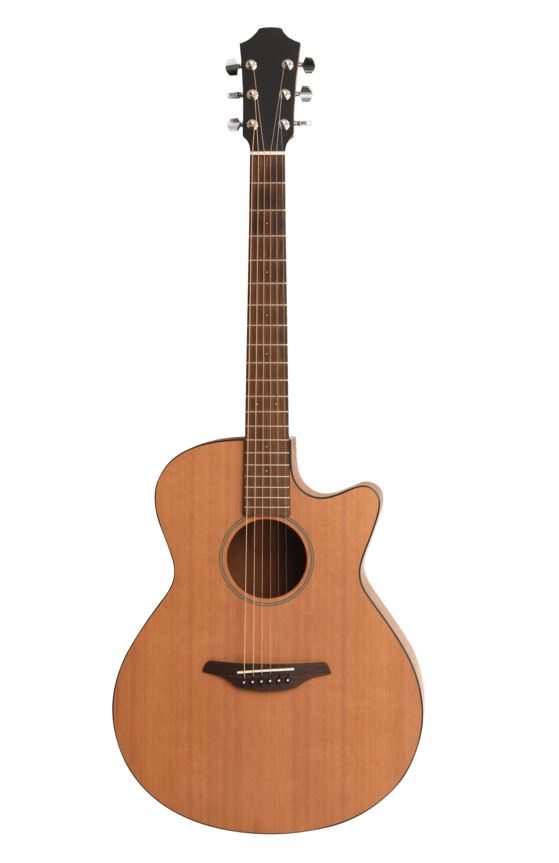 Pride was offered $20 to perform there a few nights a week. The owner of the Corner Bar in Anaconda, who had also heard about Pride’s talent, offered him $40 a night. That was twice what Pride made in a day working at the smelter. A young man with a growing family—his wife Rozene gave birth to their second son while living in the state—he welcomed the money, sometimes driving the 80 miles from Helena to Anaconda, playing for hours, driving back home to receive a few precious hours of sleep, and then going to the smelter to work.
Pride was offered $20 to perform there a few nights a week. The owner of the Corner Bar in Anaconda, who had also heard about Pride’s talent, offered him $40 a night. That was twice what Pride made in a day working at the smelter. A young man with a growing family—his wife Rozene gave birth to their second son while living in the state—he welcomed the money, sometimes driving the 80 miles from Helena to Anaconda, playing for hours, driving back home to receive a few precious hours of sleep, and then going to the smelter to work.
In his autobiography, Pride emphasizes that he didn’t encounter much explicit racism in the Helena of the early 1960s, but there were some old timers who Pride described as a bit out of touch, such as a friend who bet Charley Pride $5 that being white was a legal prerequisite to being a president. Pride took the bet, telling him that there was no such law. As Pride said in his book, “[h]e still owes me five dollars, and he probably still thinks I was wrong.”
A 1967 piece in the Independent Record may tell a more nuanced story:
“Mrs. Charles Pride, wife of Montana’s great Negro country and western recording star, told in a recent interview that she and her husband were refused service in a Helena restaurant, and a real estate agent refused to show them a house... Montana does have a sizeable non-white population in its Indian citizens, and Mrs. Pride is more concerned about the attitude Montanans have towards them than their reaction towards Negroes. They’re treated much like Negroes in the South, she says.”
Nevertheless, as Pride wrote, “[l]iving there—working, singing, playing ball—I had come to believe that some things transcended the worst of human nature and that music was one of them.” Indeed, the Prides liked Helena well enough that “we began to think of Montana as our home.”
Despite his success in winning over Helena’s crowds, Charley still did not seriously consider a career in music. He certainly wasn’t planning on entering a genre of music typically dominated by white performers. As ever, he wrote, “I wanted to play ball.”
Indeed, he managed to get a spring tryout for the Angels. He traveled to Palm Springs, taking a leave of absence from work, and paying for the trip himself. There, overeager to impress recruiters, he pitched too hard. His arm aching, he was devastated to hear the Angels’ pitching coach tell him “Charley, you just don’t have a major league pitching arm. We’re going to have to let you go.”
The Missoulian somewhat snidely remarked that “Pride,... a happy, cheerful, pleasant Southern chap, a singer and a usician as well, ...might do better if he found out just what he could do best in baseball, not trying all spots.”
The next year, ahead of another tryout with the New York Mets, Pride’s ankle was broken in a smelter accident. In a twist of fate, the injury made baseball impossible but didn’t have much of an effect on singing country music. It may have even enhanced it. Pride remembered how Johnny Walker, owner of the Corner Bar in Anaconda, took out ads in the local paper that read, “CHARLEY PRIDE... And His Broken Leg Will Be At The CORNER BAR... Saturday night... Come on Down And Watch The Fights.”
Here Pride pithily clar“fied that the fights referred to televised boxing, not to hypothetical fights over his presence in the bar.
Through his Helena performances, Pride met Dwight “Tiny” Stokes*, radio DJ and musician, who mentioned an upcoming concert with country music legend Red Foley. While it had been a long time since Foley’s heyday in the ’40s and ’50s, he had many devoted fans in the Treasure State who remembered hits like “Tennessee Saturday Night” and “Freight Train Blues.” Also on the bill was Red Sovine, best known for trucking songs like “Teddy Bear” and “Phantom 309.” Stokes encouraged Charley to approach the two Reds and ask them if he could play a song or two as well.
Red Foley’s initial response was telling. An old-fashioned man from a quickly receding era, Pride said that Foley “looked at me warily and asked, ‘Is this something pertaining to civil rights?’”
Tiny Stokes stepped in. According to Pride’s account, Stokes told Foley, “’No, no. This guy is for real... I want you to hear him. It’s got nothing to do with civil rights. He sings locally here.’”
Foley, evasive, shook Pride’s hand and said, “I see.” Then he simply walked away.
Stokes told Pride that he thought he could still arrange it so that Foley heard Charley play. He told Charley to await a signal that would indicate when to go backstage and perform a quick song.
When no signal came, Charley took the initiative himself. At intermission, he let himself into the performers’ area and asked for some of their autographs. Then he picked up a guitar and began to strum, but it wasn’t turned for the bar chords, which required great grip strength and skill. The sound it produced, he said, was something like “ching... ching... ching...” Backstage, all eyes were now on this mysterious stranger presently tuning a guitar—not his own—and clearing his throat. When he had the frets the way he wanted them, he spoke up.
“Can I play now?”
No one said anything. When the silence had become almost unbearable, and the tension seemed torrential, he decided to just start playing, breaking out into a Ray Price hit and a Hank Williams standard.
When he was done, Red Foley couldn’t quite bring himself to express admiration. Instead, Pride remembers him turning to the other Red and saying, “’Boy, that’s different.’”
Red Sovine, however, wore a big smile. According to Pride’s book, he told the young country-western singer, “’I don’t believe it. You ought to go to Nashville. I don’t care what color you are.’”
In 1963, coming from an old school country-western guy like Red Sovine, that was saying something.
Charley ended up playing a few songs in front of the crowd that night. Many of them had already seen him perform around town, or at their favorite local bar, and had grown to appreciate his music. But few of them realized that they had just witnessed the origin story of a great American singer.
Pride credited Red Sovine with giving him the push he needed to pursue in earnest a career in music, rather than baseball.
But there was still to be one more unlucky season trying to attend a Mets training camp. When he got there, he was roundly rejected and given a one-way bus ticket to anywhere he wanted.
He decided to take Sovine’s advice, called his wife, and told her that he was on his way home—with a stop in Nashville along the way.
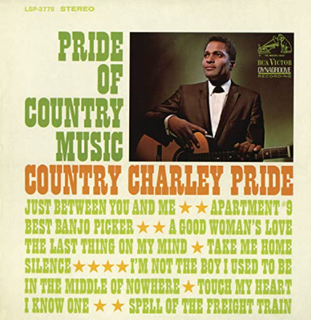
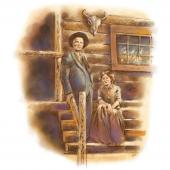


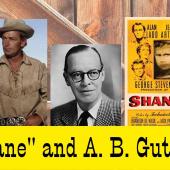

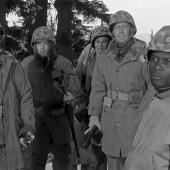


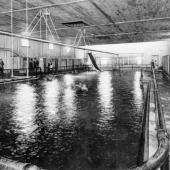

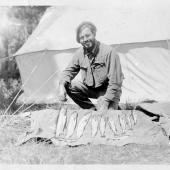
- Reply
Permalink